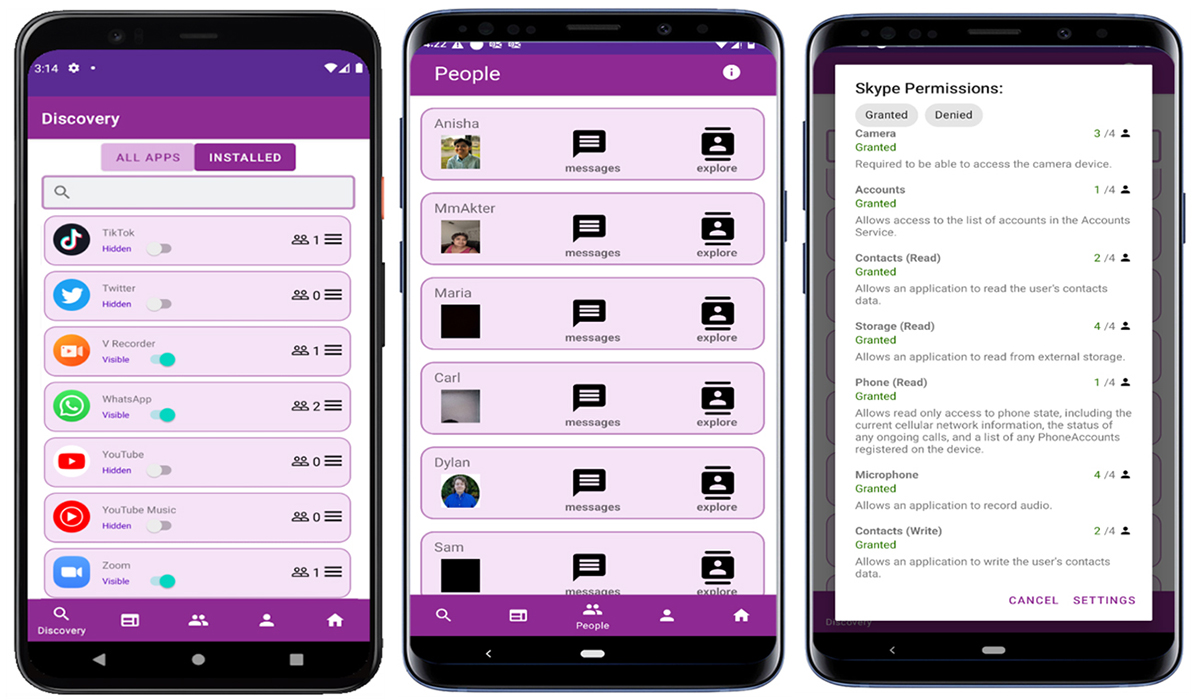Mamtaj Akter, a Vanderbilt computer science graduate student in the lab of Pamela Wisniewski, Flowers Family Fellow in Engineering and associate professor of computer science, has co-authored a study evaluating how technology can help people manage mobile privacy and security as a community.

Managing mobile privacy and security as an individual is a constant challenge. “We believe community oversight is one potential social mechanism that can allow community members to exchange help regarding their mobile privacy and security decisions,” Akter said.
In 2022, Akter, Wisniewski and their collaborators from the University of North Carolina-Charlotte and the University of Cincinnati developed an app, Community Oversight of Privacy and Security (“CO-oPS”), to evaluate this idea of community oversight playing a role in building collective efficacy for groups managing their mobile privacy and security together.

Their initial study focused on its use among parents and teens. The current study, conducted within the Socio-Technical Interaction Research lab led by Wisniewski, Akter and her co-authors, was a four-week field study with 22 communities of friends, families and/or co-workers who installed the CO-oPS app on their phones. Measures of transparency, trust and awareness of one another’s mobile privacy and security behaviors, along with individual and community participation in mobile privacy and security co-management, were measured.
At the conclusion of the study, the researchers found that after use of the app, individual and collective capacity for managing mobile privacy and security increased, with some concerns regarding collaborative management of mobile privacy and security.
“Our results provide empirical evidence that community oversight can potentially have a positive impact on individuals and communities alike,” Akter said. “Given the continued proliferation and adoption of smartphones and mobile apps, we believe apps that facilitate community oversight are an essential tool for communities to help one another keep their personal information safe and secure.”
This research is published at a time of mounting awareness of the need for improved data security worldwide. In the U.S., data compromises have increased by 68 percent between 2020 and 2021, and it is estimated that one in 20 Americans is a victim of identity theft each year.
“These statistics demonstrate a pressing need for improved mobile data security measures and heightened awareness of cyberthreats. Through the use of the CO-oPS app, users will be able to learn from trusted members of their community how to take control of their data privacy and ensure their own digital safety, thus reducing the threat of cybercrime among citizens in the United States,” Akter said.
Akter will present the findings from her paper, “Evaluating the Impact of Community Oversight for Managing Mobile Privacy and Security,” at the Symposium on Usable Privacy and Security on Aug. 8. Funding for this research was supported by the National Science Foundation.
Collaborators and co-authors include Madiha Tabassum and Nazmus Sakib Miazi, Northeastern University; Leena Alghamdi, University of Central Florida; Jess Kropczynski, University of Cincinnati; and Heather Lipford, University of North Carolina-Charlotte.
Contact: marisa.shapiro@vanderbilt.edu